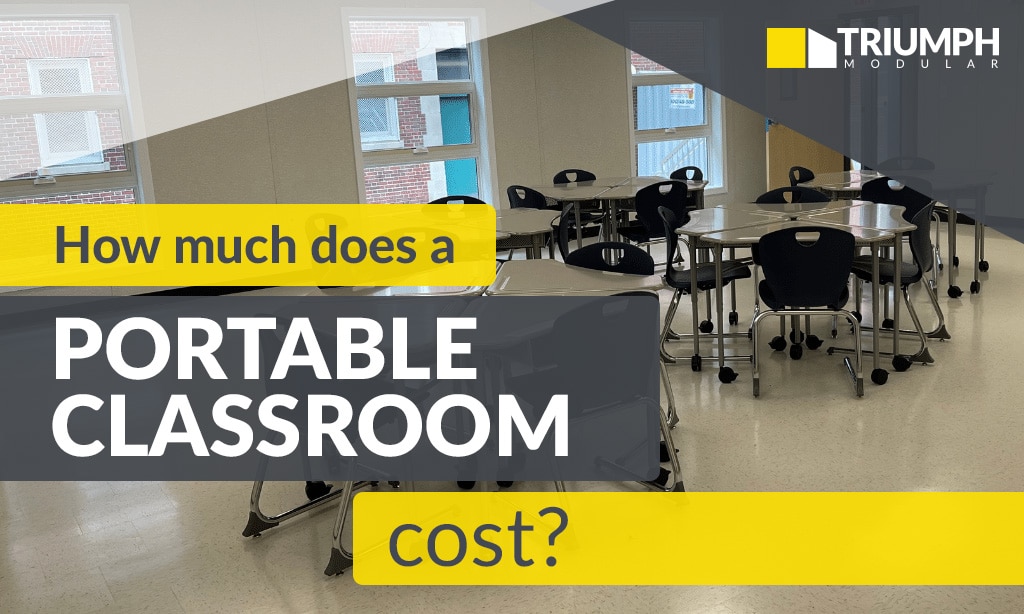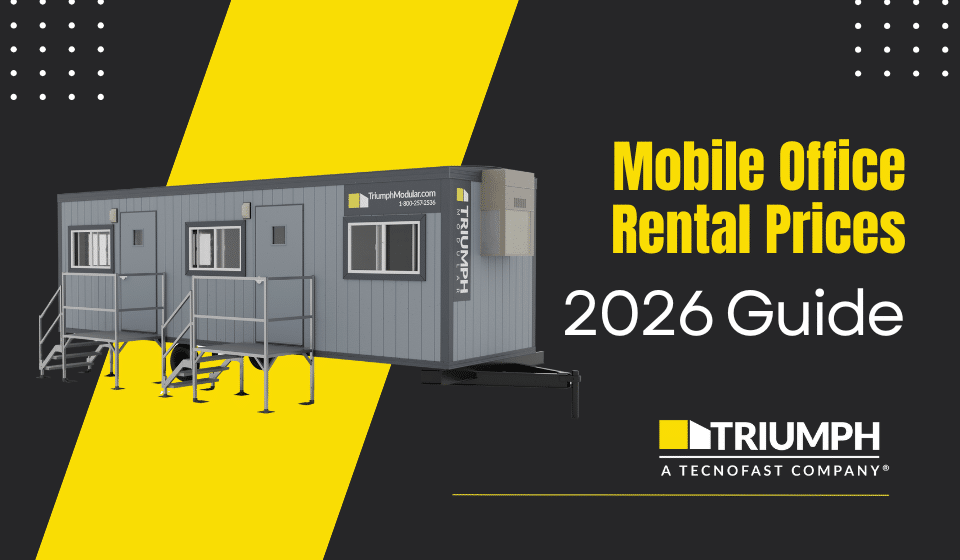For schools looking to add crucial space, modular classrooms offer a smart solution with several benefits—especially compared to traditional construction. You gain cost predictability, faster occupancy, and scalable space.
However, just like traditionally built structures, modular classrooms must follow state and local building regulations, including required permits.
What Permits Are Needed For Modular Classrooms?
Although permits for modular classrooms (and buildings in general) vary by state, most school projects will require these four types of permits:
- Building permits
- Trade permits
- Occupancy permits
- Road transportation/highway permits
Building Permits
A building permit allows construction to begin. In most states, this requires submitting engineered plans to the local building department for review. Approvals may take weeks or months depending on the project scope.
Building permits are also needed for enlargements, renovations, and major repairs.
Trade Permits
Trade permits cover systems that allow the modular classroom to function properly:
- Mechanical permit – For HVAC systems, gas piping, and vented appliances like bathroom fans.
- Electrical permit – For electrical wiring, repairs, and communication lines.
- Plumbing permit – For plumbing fixtures, supply lines, and drainage systems.
Occupancy Permits
Before a modular classroom can be used, it must pass final inspection and receive an occupancy permit. This verifies that the building is safe and built to plan, and has been signed off by the engineer.
Road Transportation/Highway Permits
Since modular classrooms are built off-site, they must be delivered via highway. That often requires oversize/overweight trucking permits, especially for large units or cross-state travel.
Permit requirements differ by state. For federal guidance, visit the FHWA Oversize/Overweight Permit Directory.
How Long Do Modular Classroom Permits Take?
Permit timelines vary widely. Some states offer streamlined processes for educational buildings, while others may involve multi-agency reviews. At Triumph Modular, we help schools stay on track by managing permit applications early in the planning process. When we serve as your general contractor, we’ll handle all permitting on your behalf.
How Can Triumph Modular Help With Permits?
Worried about permitting? Don’t be. Triumph Modular has decades of experience guiding schools through every step of the process. When you partner with us, we’ll obtain all required permits—including building, trade, and transportation—so your project stays on schedule.
Resources For States in New England
For state-specific information, here are helpful links to modular building codes and permit programs in New England:
Modular Classroom Permitting Checklist
Here’s a quick checklist to help your school team stay organized when planning a modular classroom project:
- Confirm local and state building permit requirements
- Finalize engineered drawings for submission
- Apply for building permit with your local building department
- Obtain required trade permits:
- Mechanical (HVAC, gas, venting)
- Electrical (wiring, data)
- Plumbing (fixtures, water/sewer)
- Coordinate with Triumph Modular to manage permitting timelines
- Submit for occupancy permit after final inspections
- Apply for road transport/highway permits if units cross state lines
- Review local zoning or fire safety requirements (if applicable)
Pro Tip: When Triumph Modular serves as your general contractor, we handle this entire checklist for you—ensuring nothing is missed.
What About the Cost of Modular Classrooms?
If you’re budgeting for a school expansion, you may also be wondering about the full cost of a modular classroom—including setup, permits, and more. Visit our detailed guide on portable classroom cost for a full breakdown.
Find Out More About Permits and Modular Classroom Planning
For a comprehensive look at what’s involved in planning a modular classroom project, download our Guide to Modular Classrooms. It covers permits, timelines, layout options, and more to help your school start the process with confidence.




